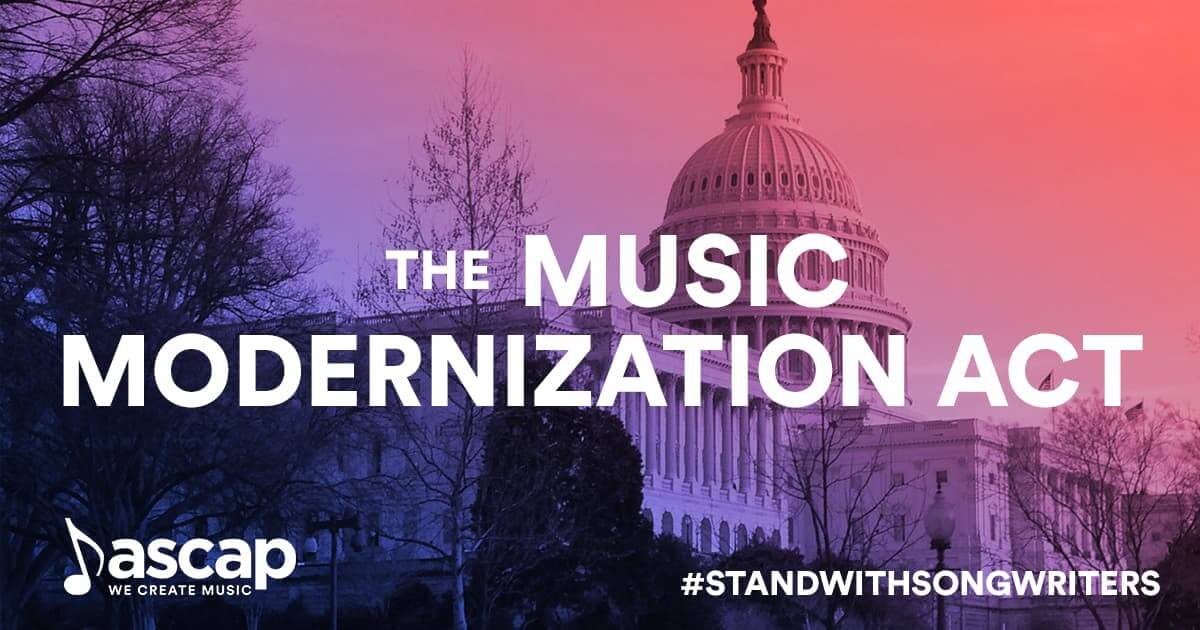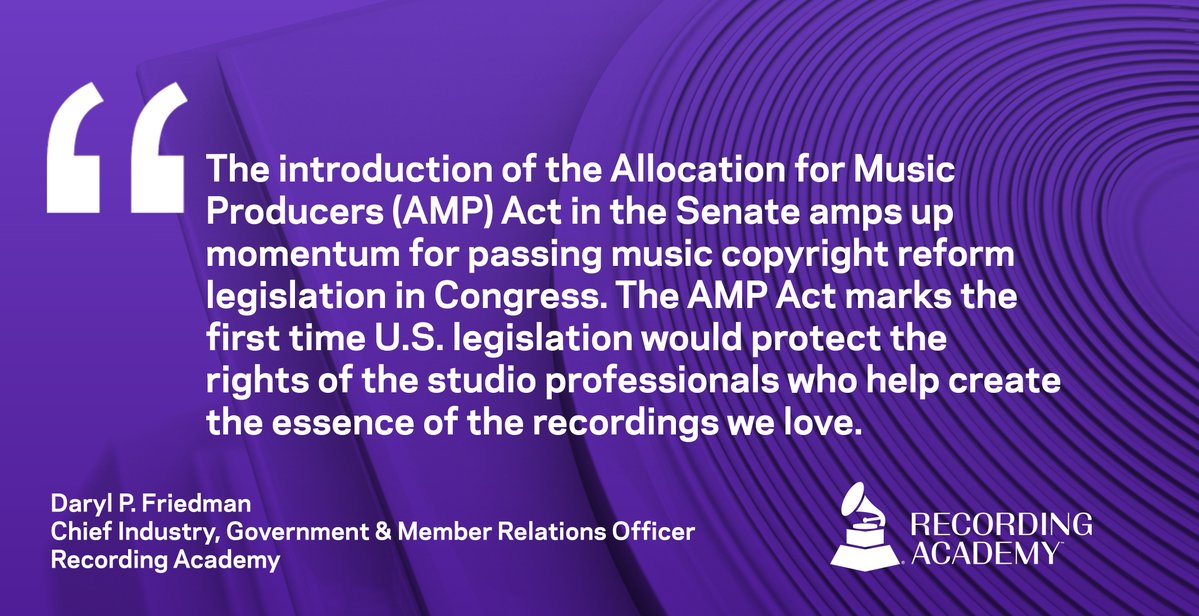
image courtesy of ASCAP
2018 will be the most important year in your musical career and you need to pay attention.
It has nothing to do with your new release, or that mini-tour you booked. Nope, this is the nitty gritty, down and dirty, boring sausage making of the music business that you rarely see. It happens on the stock exchanges, in tech board meetings, and in Congress through the House Judiciary Committee. This is where monumental changes to your very livelihood happen. Remember when songs suddenly became $.99? Yeah, there wasn’t a musician alive who was fighting for that. It happened in a boardroom of a tech company trying to make money off music – including your music. Remember how you fought to get a streaming rate equivalent to a mechanical download but ultimately lost to some magical math figure based on ad revenue? No? It happened overseas in Sweden, with a bunch of VCs in a room full of Macs, and devoid of musicians.
Look, you may not be able to fight for the change you want in your musical career, but you can no longer plead ignorance. You must be informed. You’re gonna need to know where every penny is. I have opinions on each one of these, and not all of these developments are positive, especially for our independent music making and rightsholders community. But, the most important thing is that you are aware of these changes in your industry.
So, here are the most important developments happening right now.
Spotify is by far the biggest needle mover of all the DSPs. Aside from what the company specifically does on its own, it also is part of a music subscription sector that will determine, to some extent, what the competition – Apple Music, Amazon Music, YouTube Music, et al. – does as well.
Spotify (NYSE: SPOT) has become a publicly traded company. This means that they will be under pressure from analysts and ratings agencies to make traditional business moves that spur revenue growth and profitability. You can find countless stories in the music business press exclaiming how, “if they could just lower the licensing dues they must pay, they maybe could turn a profit.” If you see this, understand that means less money for you as an artist, as a label, as a publisher, and as a songwriter; less than whatever your current rate of $.000whothehellknows.
The biggest change that will affect almost every single us is The Music Modernization Act. This is part of the copyright reform package in the house called the “music-bus” bill.
The MMA creates a new digital mechanical licensing organization (like SoundExchange), run by publishers and songwriters, to identify and pay digital royalties, and unclaimed or mis-assigned royalties will reside here instead of with the companies that owe them. This same organization would house a transparent mechanical metadata database (paid for by the DSPs like Spotify). By offering to help with identification, it would eliminate the legal liability of DSPs (for 3 years) that has triggered lawsuits against Spotify and Apple Music for using songs without permission and failing to identify and pay the rights holders.
There are currently many different databases at the PROs, and other digital aggregators, but publishers have not been able to agree on one to use or even been able to build a comprehensive and accurate one on their own. I have my doubts about this, but it’s a start. Lastly, the MMA will also amend Section 115 of the U.S. Copyright Act to change the way the Copyright Royalty Board (CRB) determines rates. Basically, changing from using a vague legal standard to one that reflects market value, or a willing buyer/willing seller market rate.
If you’re an independent making music, guess what? You are a producer. In some cases, you may also be the engineer. Get your credits in order.
The AMP Act (Allocation for Music Producers) will be the first time that music engineers and producers are addressed in U.S. copyright law. The bill, in its current form, would enable SoundExchange to make direct payments to engineers and producers when recordings are played on satellite online radio services – like Pandora.

image courtesy of The Recording Academy
Currently, engineers and producers get paid shares (points) from the artist or labels, but not directly. The AMP act will establish a legal and formal procedure for them to collect those royalties directly from SoundExchange. Currently, SoundExchange does have a system in place for artists to pay producers and engineers their share of royalties directly through LOIs (Letters of Direction). One note, the current Senate bill markup only allows for engineers and producers to be paid on recording projects prior to 1995 when used on satellite and online radio services.
There is no music business without those who came before us. The CLASSICS Act (Compensating Legacy Artists for their Songs, Service, & Important Contributions to Society) will finally fix a loophole that allowed digital music services to not pay royalties to artists on recordings pre-1972. This is right, this is just, and it’s way past due. Hopefully, you will enjoy a career in the music business long enough to be a “classic.”
I know this is a lot of mumbo jumbo to many of you. Here’s what I want you to do:
- Get your catalog in order right now so that you can participate in a new database.
- Go sign up for SoundExchange; it will become exceedingly more important to your career.
- Follow @housejudiciary on Twitter and check their website for hearings and public comment.
ABOUT THE AUTHOR
–Michael St. James is the founder and creative director of St. James Media, specializing in music licensing, publishing, production and artist development.
